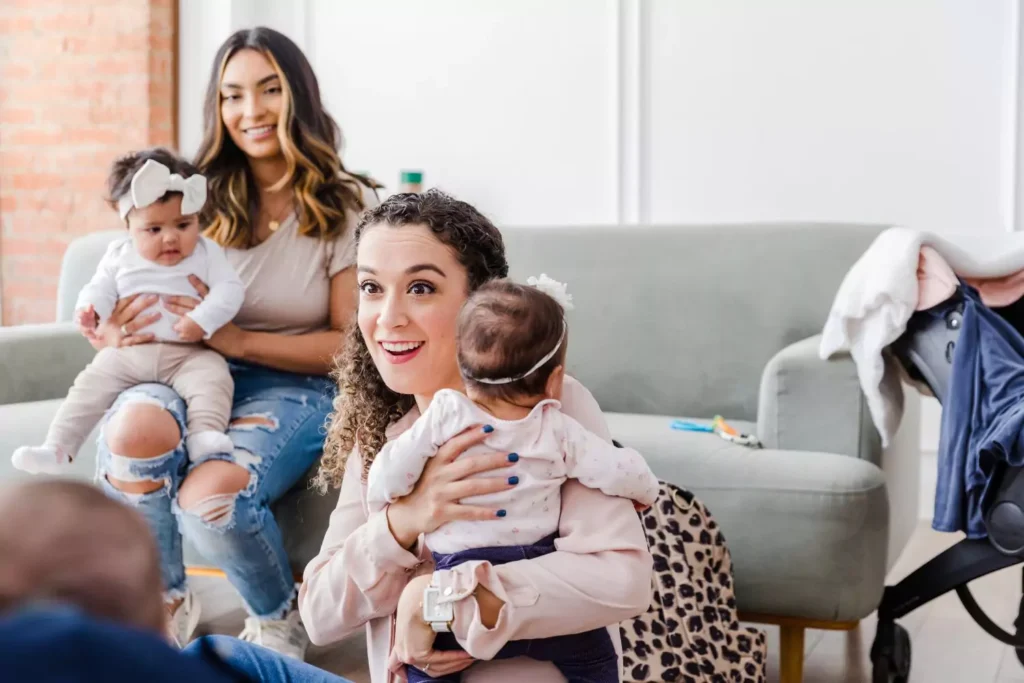My friend plopped down on my couch and made herself comfortable. She was in her mid-20s, recently married and expecting her first child. “I always dreamed of being a young mom,” she chirped.
I smiled. I was a few years younger than she and wouldn’t be married for eight more years. But I didn’t know that.
Marriage wasn’t just around the corner for me, as my family and friends predicted. And as I remained single into my late 20s, I knew that “young mom” would never be one of my titles. I even grappled with the possibility that I might never have natural children.
What Is
There was once a childless single woman who faced this same reality. Her husband died young, and though she was still youthful and beautiful enough to remarry, she made a startling choice. She chose to leave her hometown, and country, to live with her mother-in-law.
“Do not do this,” her mother-in-law pleaded. “I am cursed. Empty. I can never give you the opportunities you deserve.” But the young woman was determined. Rather than embracing her best chance to be a wife, a homemaker and a mother, she chose to make her home with bitterness — in an unfamiliar land.
She knew that by doing this, she would very likely end an old maid, nursing her widowed mother-in-law (who, in her deep despair, had taken the name “bitter” — Mara).
“I will stay with you, Mara,” the young woman said. “I have made an oath with God that only death will separate us.”
And, in that moment, Ruth relinquished everything that could have been hers in Moab. She followed her mother-in-law to Judah where Moabites were not even permitted to be in the assembly of worshipers. She would be an outsider with few options, living with an emotionally damaged woman.
What Now?
During my 20s and early 30s I was hit with the many things I wouldn’t be: married at 22 like my mom, the first of my siblings to wed, a young mother, a youthful grandmother, a couple married for 70 years. Life just wasn’t going to work out the way I had anticipated.
And I had a choice.
Choice No. 1: I could dwell on the deep sense of loss I felt at the death of those dreams, question God’s goodness and become bitter.
Choice No. 2: I could grieve the things I would not be and ask my loving Father to show me new dreams — the things “no eye has seen” (1 Corinthians 2:9).
By God’s grace, I went with Choice No. 2. Though as a single woman I could not be fruitful through marriage and childbearing, I could be fruitful in the lives of others. I could have divine conversations with friends. I could buckle down and serve those in need. I could bring sweetness to bitter situations.
But first I had to let go of my expectations for my life. I had to give up control of my circumstances (control I didn’t truly have in the first place). I had to accept with joy the things I would never be.
Sometimes I think of people whose paths have been very different than my own. Those who seemed to effortlessly find Mr. (or Mrs.) Right, married young, had children in what seemed like the perfect timing. The thing is, bitter circumstances touch us all. That’s why books like Ruth and Ecclesiastes and Job are included in the Bible.
Life doesn’t always go well for those who follow God. In fact, sometimes it’s the opposite. For reasons only heaven knows, our lives can seem void of goodness. And like Naomi, we believe bitterness will always be our companion.
What May Be
Ruth and Naomi arrived in Bethlehem, during a dark time in Israel’s history. In the time of the judges, it is said that everyone did what was right in his own eyes. The system was broken. But in the worst of times, there are always the faithful. Naomi and Ruth were among them.
So was Boaz, a relative of Naomi’s. And it just so happened that Ruth ended up in Boaz’ field, collecting leftover barley. It was there that Boaz first noticed her. He was impressed by her industrious ways. Instead of allowing grief to overwhelm her, Ruth was sacrificially providing for the needs of another.
Boaz was captivated by a woman who acted so contrary to her circumstances. Though he himself was a man of repute, as the son of a prostitute he understood the sting of being an outcast. Perhaps that is why his heart went out to the young woman.
He invited Ruth to rest and collect grain within the protection of his field. “May the Lord repay you for what you have done,” he said. “May you be richly rewarded by the Lord, the God of Israel, under whose wings you have come to take refuge.”
He did not know he would be the means of God’s reward.
What Next?
At some point during my single years, I decided it was futile, and even sinful, to cling to the things I would not be. I could only seek to know better the things I would be: a loving daughter, a loyal friend, an encouraging sister, a devoted follower of Jesus.
Then God began to plant other dreams in my heart.
It’s true, you may never have natural children, He whispered. But how do you know that I will not bring you a husband who shares your heart for adoption?
And then: You may die without ever getting married. You would not be the first. But I will show you the glories of My kingdom.
And, Right now it seems as if you have no one but Me. But I will reveal amazing things to you as you walk by My side.
Many dreams I couldn’t even imagine — they resided in my heart as very basic hope — things unknown to me that I trusted God could do. Instead of wasting my energy on grieving what I would never be, I sought to transfer that energy into being someone for Him.
What Will Be
Boaz’ relationship with the young Moabitess did not end with the role of beneficiary. He was soon enough made aware that it was his duty to act as kinsman-redeemer to Ruth and Naomi. And so, through a series of God-ordained events, he married the girl who had captured his attention.
The elders declared: “May the Lord make the woman who is coming into your home like Rachel and Leah, who together built up the house of Israel.” Ruth was no longer an outsider.
She had realized the dreams she had purposefully set aside when she chose to stay with Naomi — and serve the God of Israel. Ruth became a wife, a mother, a noble woman, a means of provision for her family and the great-grandmother of a king.
How far the young woman had come from the place of bitter disappointment. Even her mother-in-law, upon holding her grandson in her arms, was no longer Mara. “Praise be to the Lord, who this day has not left you without a kinsman-redeemer,” the townswomen sang. “May he become famous throughout Israel!”
* * *
The truth is, I cannot dream God-sized dreams. I also cannot bear God-sized tragedies. Whether I am realizing dreams or dealing with the loss of them, I need the One who created me and loves me. Like the Moabitess, I can choose each day to cling to Him.
There is comfort in knowing the days of my life are numbered by Him. He knows all of the things I will not be. But really that’s not so important. What is more important, is that He knows the things I will be. Things better than I could ever dream up.
Copyright 2010 Focus on the Family. All rights reserved.












